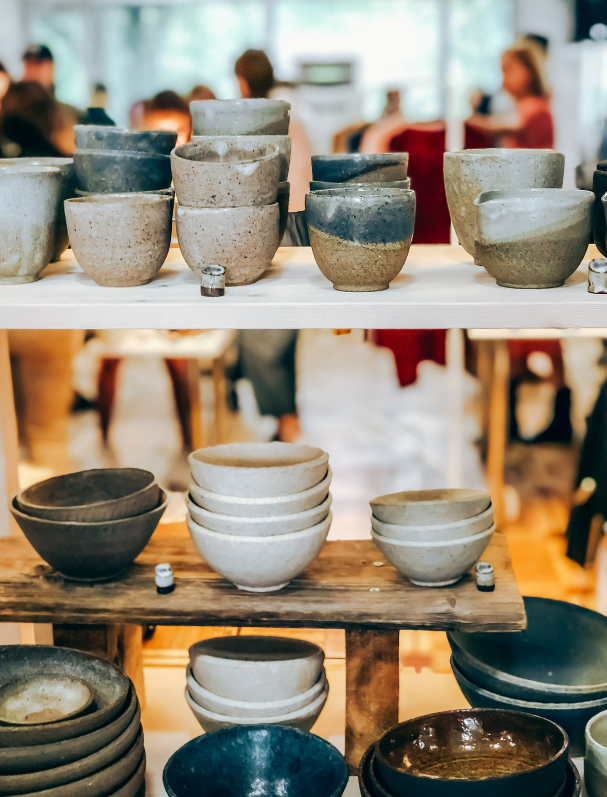Selling handmade products is a rewarding venture, but scaling your business by partnering with retail shops can elevate your brand’s visibility and revenue. Knowing how to find stockists for your handmade products isn’t just about filling shelves; it’s about building lasting relationships with retailers who appreciate your craft and share your vision.
The right stockists can open doors to new customer bases, help you establish credibility, and ensure your products reach a broader audience. If you’ve been wondering how to find stockists for your handmade business, the process starts with understanding your ideal retail partners, preparing a compelling wholesale pitch, and researching stores that align with your brand values.
It’s not just about approaching stores randomly; knowing how to find stockists involves targeted strategies, outreach, and showcasing the uniqueness of your creations.
Here’s a step-by-step guide to help you get started with selling wholesale and finding the right stockists for your handmade products.
How to Find Stockists to Partner With
Perfect Your Wholesale Offering
Before approaching potential stockists, it’s essential to have a well-organized wholesale system in place. Retailers expect professionalism, and being prepared will help you stand out. Here’s how to prepare:
- Create a wholesale catalog: Design a digital catalog showcasing your product range, pricing, order minimums, and shipping information. Include professional product photos and concise descriptions.
- Set wholesale prices: Your wholesale pricing should account for production costs while providing enough profit for retailers when they mark up the products. Generally, wholesale prices are about 50% of your retail price.
- Establish order minimums: Determine minimum order quantities that are reasonable for both you and the retailer. This could be based on a dollar amount or number of units.
- Prepare for bulk orders: Ensure that you have the capacity to produce items in bulk while maintaining quality. Stockists will want to restock quickly, so having enough materials on hand is vital.

Identify the Right Retailers
Not all retailers will be a perfect fit for your handmade business. It’s important to research potential stockists carefully to find those who align with your brand. Here’s how to start:
- Research local boutiques: Visit local retail stores that sell handmade or artisanal goods, and see if your products would complement their existing range. Pay attention to product presentation, price points, and target audiences.
- Check online directories: Use online platforms like Faire, Tundra, or IndieMe to discover retail shops actively looking for handmade products. These wholesale marketplaces connect artisans with buyers.
- Attend trade shows: Trade shows and craft fairs are great opportunities to meet buyers face-to-face. Look for events that cater to your niche market. Many retailers attend these shows to discover new brands and products.
Build Relationships with Retailers
When reaching out to potential stockists, your goal should be to build a relationship rather than simply make a sale. Be professional, but also personable, in your interactions. Here’s how:
- Craft a thoughtful pitch: Personalize your emails or in-person introductions by showing that you’ve done your research. Mention why you think your products would be a great fit for their shop. Highlight any unique selling points.
- Offer samples: Retailers are more likely to buy from you if they can see and feel the quality of your products. Offering samples or free demonstrations can give them a better idea of how well your items will sell in their store.
- Follow up: If you don’t hear back right away, follow up with a friendly reminder. Don’t give up immediately unless you receive a straight rejection. In most cases, you may need to send follow up emails more than two or three times before you can get a response. Persistence is crucial as this shows that you are serious about working with them, but be sure not to overwhelm them with too many emails.
Leverage Your Existing Network
If you’ve already built relationships with other small business owners or participated in local markets, don’t hesitate to tap into that network. Word of mouth is a powerful tool in the handmade industry.
- Ask for introductions: If you know a business owner who sells to retail shops, ask if they can introduce you to potential stockists. A referral can make all the difference in landing a deal.
- Collaborate with other artisans: Partnering with other makers can also help you expand your reach. For example, if you make handmade jewelry, you could team up with a local clothing designer to sell complementary products as a bundle to retailers.
Offer Retailer Incentives
Make it easier for retailers to say “yes” to carrying your products by offering them incentives. This can help differentiate your brand from competitors:
- Exclusive designs or limited editions: Retailers love offering their customers something unique. Creating exclusive designs or limited editions for stockists can entice them to order from you.
- Discounts for large orders: Offer volume discounts to encourage stockists to purchase more products. This not only increases your revenue but also gives retailers more incentive to carry a wider range of your items.
- Consignment agreements: If a retailer is hesitant to commit to an order, you could offer a consignment agreement. This means the retailer doesn’t pay upfront but pays you once the products sell. It’s a lower-risk option for them, and it can help you establish a relationship.
Maintain Communication and Build Trust
Once you’ve secured stockists, it’s crucial to maintain a strong relationship with them. Regular communication and consistent delivery will build trust, leading to reorders and long-term partnerships.
- Check in regularly: Stay in touch with your stockists to see how your products are performing. Ask for feedback and show a willingness to adjust to their needs.
- Provide excellent customer service: Be responsive to inquiries, ship orders on time, and resolve any issues promptly. Great customer service strengthens the retailer’s confidence in your brand.
- Offer marketing support: Help retailers sell your products by providing marketing materials, such as product photos, signage, or promotional ideas. The easier you make it for them to promote your items, the better.

Expand Your Wholesale Reach
As your wholesale business grows, you can look into expanding your reach. Here are some strategies:
- Apply for online wholesale marketplaces: Platforms like Faire or Abound make it easy to showcase your products to a wide range of retailers. These platforms handle many aspects of the wholesale process, including payments and shipping logistics.
- Focus on niche markets: If your products appeal to a particular niche—such as eco-friendly, handmade, or vegan—reach out to stores that specialize in those areas. Niche retailers are often willing to partner with brands that align with their values.
Partner with Stockists to Grow Your Business
Finding stockists for your handmade products is a process that requires preparation, research, and relationship-building. Learning how to find stockists involves understanding your ideal customer, targeting retailers that align with your brand, and presenting your products professionally. By offering a well-organized wholesale program, targeting the right retailers, and maintaining good communication, you can grow your handmade business and see your products on the shelves of your favorite stores.
If you’re unsure how to find stockists, start by researching local boutiques or online stores that already carry similar handmade items. Networking at trade shows and local events is another effective way to make connections. Social media platforms and online directories can also help you identify and reach out to potential stockists who fit your brand.
Keep refining your wholesale strategy and focus on learning how to find stockists who are enthusiastic about carrying your products. Over time, as you build trust and deliver excellent service, your network of stockists will continue to grow. With dedication and the right approach, you’ll see your products featured in more stores, helping your business thrive.
